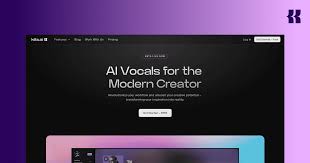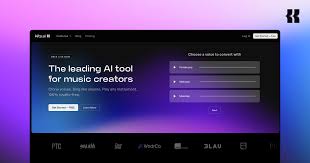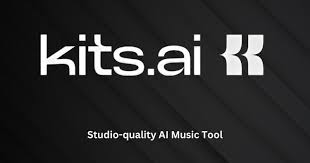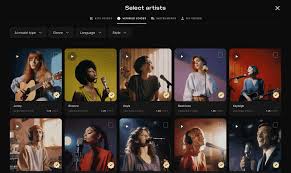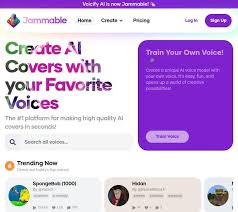If you’ve ever wondered how artificial intelligence is changing the music industry—not just in automation but in actual creativity—then Flow Machines is a name worth knowing. So, what are Flow Machines? They’re not robots that strum guitars or digital assistants humming tunes. They’re a powerful suite of AI-based music generation tools developed to collaborate with human artists, rather than replace them.
At its core, Flow Machines is an AI music composition system developed by Sony Computer Science Laboratories (Sony CSL). It’s designed to help composers, producers, and even amateur musicians co-create music using machine learning models trained on diverse musical styles. Whether you’re a professional composer or a bedroom beatmaker, Flow Machines offers a new way to interact with AI for creative and customized song creation.

How Do Flow Machines Work?
Flow Machines uses a combination of neural networks and rule-based algorithms to analyze and generate music. It works in two primary phases:
1. Style Modeling and Data Training
Flow Machines learns from a massive database of human-composed music. This includes everything from classical symphonies to pop, jazz, and electronic tracks. The system identifies stylistic features such as:
Chord progressions
Melodic patterns
Rhythmic structures
Genre-specific arrangements
This is made possible by a tool called FlowComposer, a web-based interface that allows musicians to select musical styles and build songs from pre-trained AI models.
2. Assisted Composition
Once the system is trained on your preferred style, it helps you generate new compositions. You're not just pressing a "generate" button. Instead, you interact with the AI, selecting which suggestions to keep, edit, or discard. This makes the tool collaborative rather than autonomous—an assistant rather than a replacement.
Real-World Use Cases: How Artists Use Flow Machines
Flow Machines has already been used in commercial music projects. For instance:
In 2016, French composer Beno?t Carré used Flow Machines to release an album under the alias SKYGGE.
One of the album’s songs, “Daddy’s Car,” was composed in the style of The Beatles and gained global media attention for its Beatles-like harmonies and structure, all assisted by Flow Machines.
This isn’t just about fun demos—real musicians are publishing real music using Flow Machines.
Flow Machines vs Other AI Music Tools
If you’re familiar with tools like AIVA, Suno AI, or Amper Music, you might be wondering: How is Flow Machines different?
| Feature | Flow Machines | AIVA | Suno AI | Amper Music |
|---|---|---|---|---|
| AI Collaboration | Yes (interactive composition) | Yes (more autonomous) | Yes (text-to-music) | Yes (template-based) |
| Style Customization | High (train your own style models) | Medium | Low | Medium |
| Interface | Web-based, visual | Web & API | Web app | Web app |
| Commercial Use | Proven use in published music | Yes | Limited | Yes |
Flow Machines stands out because of its deep customization and the ability to build a unique musical identity through AI—not just generate royalty-free background music.
Why Flow Machines Matter in 2025
In a world flooded with AI-generated content, Flow Machines represents a shift toward AI as a creative partner. This is particularly important for:
Indie musicians looking to scale production
Film and game composers wanting rapid idea prototyping
Educators introducing music theory through AI interaction
And with the music industry leaning heavily into digital-first strategies, tools like Flow Machines are increasingly becoming essential in professional workflows.
Getting Started with Flow Machines
As of 2025, Flow Machines is available through:
FlowComposer: A browser-based sequencer for interactive composition
Flow Machines Professional (FM Pro): A commercial-grade tool suite for advanced users
To try it out, visit https://www.flow-machines.com and explore demos or request a license.
Pros and Cons of Flow Machines
Pros:
Highly customizable to specific music styles
Collaborative AI model encourages creativity
Used in real-world commercial music
Educational applications in music schools
Cons:
Requires some musical knowledge to get the most out of it
Not ideal for “one-click” full song generation
Professional version is not free
Conclusion: The Future of AI Music with Flow Machines
Flow Machines isn’t just another AI beat maker. It’s a sophisticated system built for serious musicians who want to explore new sonic territories without losing creative control. Whether you're composing pop songs, film scores, or experimental art music, Flow Machines empowers you to push boundaries with AI as your co-pilot.
And with growing applications in commercial releases, education, and indie production, it’s safe to say Flow Machines is reshaping the music creation landscape—one co-composed track at a time.
Frequently Asked Questions (FAQ)
Q1: What types of music can Flow Machines generate?
A: Almost any style—jazz, classical, pop, rock, EDM—depending on your input and the trained models you use.
Q2: Is Flow Machines free?
A: FlowComposer offers a free tier, but Flow Machines Professional is a licensed product.
Q3: Can I use Flow Machines commercially?
A: Yes, many artists have released commercial tracks with music co-created using Flow Machines.
Q4: Do I need to be a music expert?
A: No, but having a basic understanding of music theory can help you fully leverage the tool.
Q5: Is Flow Machines available on mobile?
A: Currently, it’s web-based and optimized for desktop use.
Learn more about AI MUSIC

